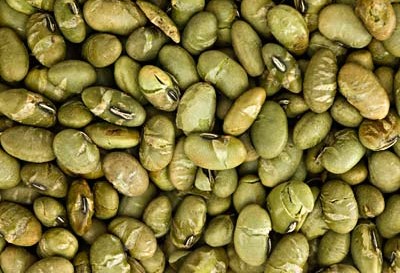SKU:
Dry Roasted Edamame
$5.99
5.99
119
$5.99 - $119.00
Unavailable
per item
Crunchy roasted and OH SO HEALTHY Edamames are the perfect protein kick for your daily snacking ! We offer these in our hand made trail mix which includes cranberries, and coconut !
EVERY ORDER SHIPS FRO JUST $6.99 BUY 3 POUNDS BUY 100 POUNDS BEST SHIPPING ONLINE !
PLUS SPEND $35.00 OR MORE GET 1 POUND OF ANY BRITTLE WE MAKE FREE WITH YOUR ORDER !
By eating nuts and having a healthy diet low in saturated fats and high in fiber is a good start. Nuts contain fatty acids, unsaturated fats, and packed with protein !
If there was a “bad” aspect to nuts it is they have a lot of calories, but many of the health benefits may out way this part ! when eaten with a healthy diet
Is the consumption of nuts good for the heart ?
Although a great deal of research suggests that nuts can benefit heart health and reduce the risks of dying early from heart disease and other causes, the evidence is still inconclusive. But, unless you're allergic to nuts, there's no real danger in eating nuts, so you can certainly include nuts as part of your heart-healthy diet.
One way nuts may help your heart health is by lowering the low-density lipoprotein (LDL, or "bad") cholesterol levels. LDL plays a major role in the development of plaque that builds up on the blood vessels. Eating more nuts has also been linked to lower levels of inflammation linked to heart disease.
Nut consumption may also help in the reducing the risks that are associated with blood clot development and those could lead to heart attacks .
Nuts contain elements that could help with heart health !
Aside from being tasty nuts contain some of the following which could help with heart health :
If there was a “bad” aspect to nuts it is they have a lot of calories, but many of the health benefits may out way this part ! when eaten with a healthy diet
Is the consumption of nuts good for the heart ?
Although a great deal of research suggests that nuts can benefit heart health and reduce the risks of dying early from heart disease and other causes, the evidence is still inconclusive. But, unless you're allergic to nuts, there's no real danger in eating nuts, so you can certainly include nuts as part of your heart-healthy diet.
One way nuts may help your heart health is by lowering the low-density lipoprotein (LDL, or "bad") cholesterol levels. LDL plays a major role in the development of plaque that builds up on the blood vessels. Eating more nuts has also been linked to lower levels of inflammation linked to heart disease.
Nut consumption may also help in the reducing the risks that are associated with blood clot development and those could lead to heart attacks .
Nuts contain elements that could help with heart health !
Aside from being tasty nuts contain some of the following which could help with heart health :
- Plant sterols. Some nuts contain plant sterols, a substance that can help lower your cholesterol. Plant sterols are often added to products like margarine and orange juice for additional health benefits, but sterols occur naturally in nuts.
- Unsaturated fats. It's not entirely clear why, but it's thought that the "good" fats in nuts — both monounsaturated and polyunsaturated fats — lower bad cholesterol levels.
- Omega-3 fatty acids. Omega-3 fatty acids are found in many kinds of fish, but many nuts are also rich in omega-3 fatty acids. Omega-3s are a healthy form of fatty acids that seem to help your heart by, among other things, preventing dangerous heart rhythms that can lead to heart attacks.
- Fiber.nuts contain fiber, which helps lower your cholesterol. Fiber makes you feel full, so you may eat less. Fiber is also thought to play a role in preventing type 2 diabetes.
- Vitamin E. Vitamin E may help stop the development of plaques in your arteries, which can narrow them. Plaque development in your arteries can lead to chest pain, coronary artery disease or a heart attack.
- L-arginine. Nuts are also a source of l-arginine, which is a substance that may help improve the health of your artery walls by making them more flexible and less prone to blood clots that can block blood flow.
